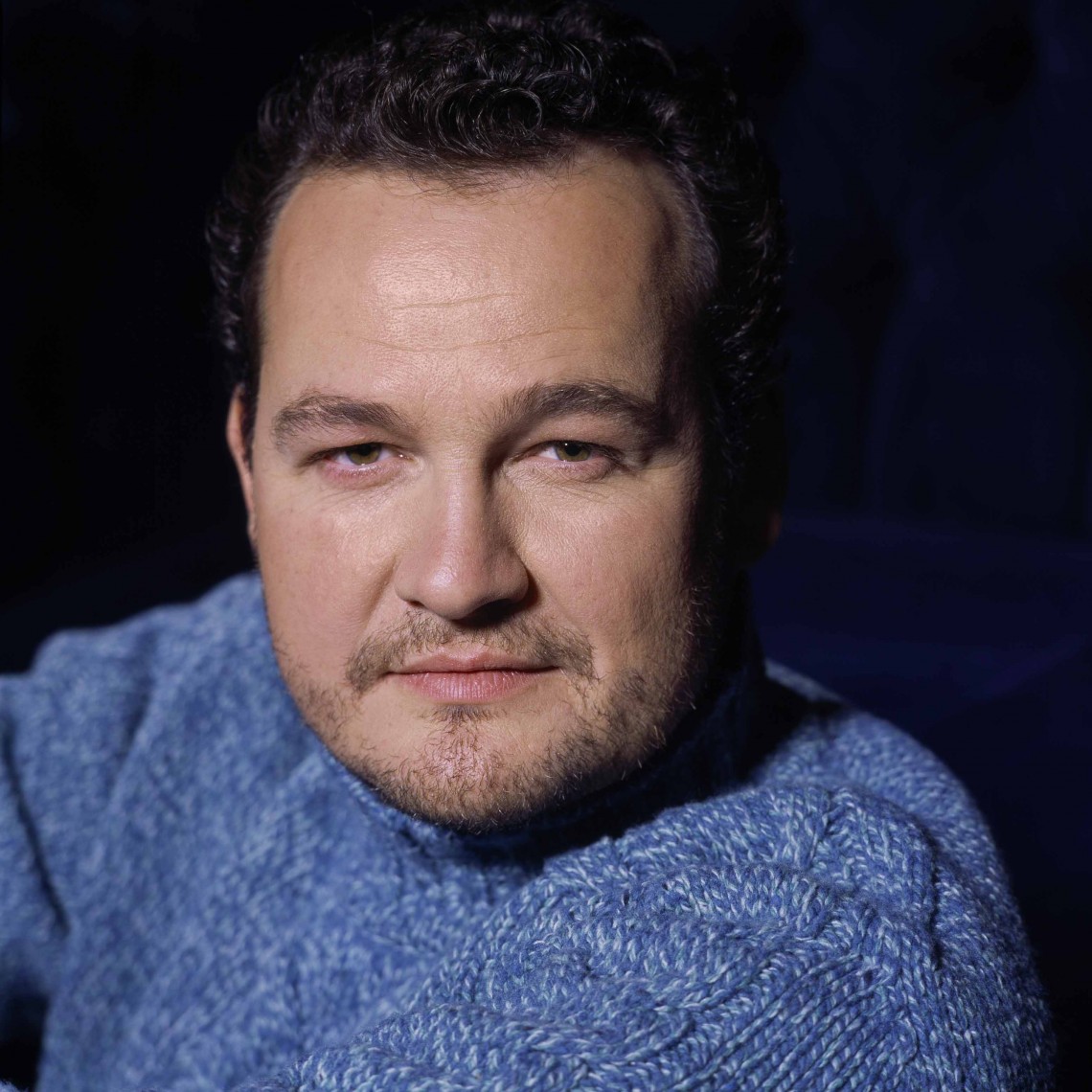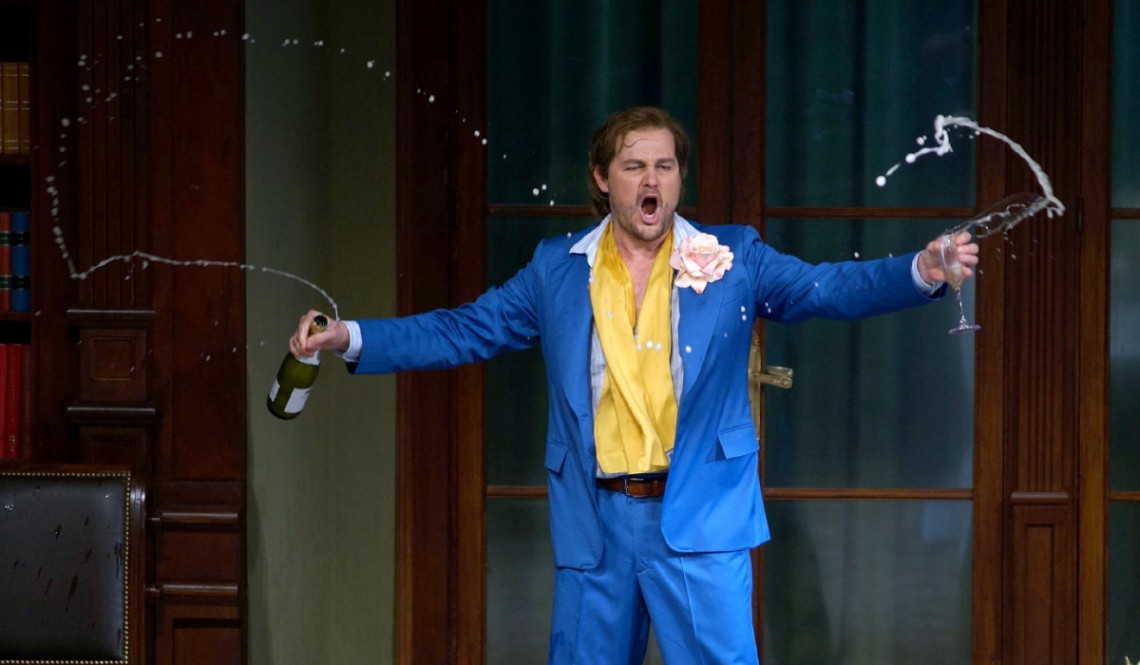
Don Giovanni has always been among the most popular operas in the standard repertoire. A quick check of the statistics from the last five seasons puts it at No. 10, out of a total of 2,581 operas performed by over 900 companies worldwide. Not only is it held in the highest regard by opera lovers, and scholars, but the likes of Rossini, Tchaikovsky, Gounod, Flaubert and George Bernard Shaw had nothing but praise for this dramma giacoso.
What accounts for its enduring popularity? To be sure, it has some of the most magnificent music composed by Mozart, but a large part of the attraction has to do with its eternal theme of love vs. lust, virtue vs. desire, truth vs. falsehood, sacred vs. profane, the full spectrum of human emotions that never go out of style. Its contemporary resonance makes Don Giovanni a prime candidate for the Regieoper treatment. Stage directors with theatre or film background seem to be particularly drawn to the Don Juan legend. My first live encounter of a Regie-driven Don Giovanni was the Peter Sellars production set in Spanish Harlem back in the 1980’s. I recall seeing it in a theatre at the State University of NY College at Purchase and it caused quite a scandal at the time. Say what one will about Sellars’ vision, he was ahead of his time.
Now that traditional productions are more or less extinct in European houses, the ones I see there on my annual visits are almost entirely Regie-driven. The Don Giovanni productions that stick out in recent memory include Calixto Bieito’s at the Liceu in Barcelona that’s now available on DVD. I still remember the suppressed, slightly uncomfortable laughter in the audience at the rocking of the Mercedes in center stage with the Don and Anna going at it in the backseat. Another is the Stefan Kimmig production in Munich with four Canadians in the cast (Gerald Finley, Erin Wall, Joseph Kaiser, Philip Ens), where all action takes place insider shipping containers, some with animal carcasses hanging upside down. Next month, Bastille audiences will get to see a revival of their production by Austrian filmmaker Michael Haneke where the opera is set in the corporate world and Don Giovanni, a business executive, meets his death by plunging off an office tower. Each one represents a highly individualized and compelling vision by the stage director, but if truth be told, some are more comprehensible, coherent and thus have greater resonance with the audience.
As the opera-going demographics change with each passing year, one can sense a gradual shift from the very traditional and interpretatively neutral style of production values to a bolder re-thinking of old standard repertoires more attuned to 21st century sensibilities. Even the ultra-conservative Metropolitan Opera audiences are dragged kicking and screaming into wholesale re-imagining of old warhorses like Rigoletto and La traviata, the last a huge departure from the uber-opulence of the Zeffirelli production. The question is – what makes a meaningful and evocative re-imagining that works, one that illuminates the music and the text? It’s a tricky business as there are no hard and fast rules as to what constitutes thoughtful versus willful interpretations.
A couple of years ago I interviewed European-trained Canadian opera director Michael Cavanagh, who has done some very good work including Nixon in China at the Vancouver Opera, and Svadba and Beatrice Chancy for the Queen of Puddings Music Theatre here in Toronto. In our stimulating conversation on staging, one thing that stayed with me was his comment to the effect that the more a stage director changes the piece by time/place-shifting, or adding/omitting music, text, characters, or changing the relationships between the characters, the higher the bar is set. And it gets harder and harder to ‘get it right.’ In the worst-case scenario, you can just feel the audience tune out and that’s a great tragedy. For the stage director, the bottom line is to make sure your audience stays with you and buys into your concept. With the generally conservative North American audience, it’s not an easy proposition. It requires an unshakable vision by the director and strength of commitment by the entire creative team, particularly the singers as they are on the “front line” so to speak.
The COC’s new Don Giovanni directed by Dmitri Tcherniakov and premiering this week was commissioned by the late Gerard Mortier, the Intendant of Teatro Real (Madrid), in co-production with Aix-en-Provence, the COC and the Bolshoi Theatre. This production has generated polarized critical and audience reactions, par for the course in Regieoper. So it’s wise of the COC to put the director’s vision front and center, through interviews on radio, the internet and the print media. I enjoyed reading Gianmarco Segato’s insightful piece on Tcherniakov in the current issue of Prelude, and there was a roundtable discussion on Regieoper last weekend with many speakers, including Against the Grain’s Joel Ivany, Canadian baritone Russell Braun and director Dmitri Tcherniakov. (See Jenna Douglas’s report for Musical Toronto here)

Recently I caught up with Braun for a chat about the upcoming Don Giovanni and to get his take on singing this role:
JS: You haven’t sung Don Giovanni for many years, since your role debut in Quebec City in 2002. Can you tell us why you’ve put it aside for such a long time?
RB: It’s partly due to circumstances – I was offered two productions after Quebec but they ended up not working out. But the main reason is that I feel my qualities as a singer and performer don’t really fit your traditional productions of Don Giovanni; I’m not really part of that segment of the baritone population that runs around with their shirts off all the time (laughs). Many productions focus almost exclusively on the sexuality of the piece, but there’s so much more to the role. In the Tcherniakov production, the character’s power of domination is less physical (sexual) and more mental as he ages. He’s in pursuit of not so much women and sex but the idea of freedom, viva la libertà…
JS: I saw one of the rehearsals and I’m struck by how much running around on stage you do in this production. How do you deal with it and sing at the same time?
RB: The most exhausting part for me is the minute and twenty seconds of singing Fin ch’han dal vino (Champagne Aria)…so much is happening in the staging of this!
JS: Since this production is a very radical re-imagining of this opera, a far cry from a traditional take, I want to ask – do you buy into the director’s concept?
RB: I completely buy into it – I don’t necessarily agree with everything. First of all, it’s my professional obligation to buy into the director’s concept…it’s my responsibility. I always try my very best to accept that my director is not staging this for his own personal pleasure. I have done quite a number of modern productions. I like modern productions but I also like classical productions. But there’s always one moment I realize the director knows the piece much better than I do, in its entirety. I may know my role better but the director understands the piece as a whole. Tcherniakov is not an easy director to work with, but from the first moment of working with him, I (and everyone else) realize that he is totally committed and engaged. He’s not doing anything that’s gratuitous; he’s actually is a very literal director. He knows the piece inside out, both music and text, and I really respect that. I’ve had directors who work only from a libretto – that to me is sacrilegious. Tcherniakov tries to make sense of every dynamic and every syllable. If sometimes it appears the action on stage is going against the text, it’s actually because it’s overly literal…
JS: He changes the interrelationships of the characters, for example creating a relationship between Anna (mother) and Zerlina (daughter). Anna and Elvira are cousins. These are obviously not in Mozart. How do you feel about these changes?
RB: I have to say I don’t find these hard to accept. An important element in our production is age. You can’t just throw anybody into this production, you have to have a Don Giovanni at least my age – I turn 50 this year. You have to have an Ottavio nearly my age, and also Donna Anna. They are all mature characters, in contrast to the incredibly young characters like Zerlina and Masetto, and also Leporello in this production. Leporello is probably at least 20 years younger than Don Giovanni, even though Kyle and I are fairly close in age. So age is a very important element in this production, for that reason I find the idea that Zerlina is Anna’s daughter actually works really well, because for example in the Act One quartet, just after La ci darem la mano, Elvira comes in, and Zerlina is brought back to the scene where her mother and her aunt are present on stage. It makes for a very interesting dynamic. I find these elements really interesting and worthwhile to be told to the audience.
JS: I feel that often the audience doesn’t know what is in the director’s mind. So really Tcherniakov and COC should have a detailed explanation in the program for the audience to read before they go to see it, so they can have a better appreciation of what they are seeing. Otherwise for someone who doesn’t know what his concept is, it can be very jarring.
RB: Actually I think people who have the most problem (with Regiedriven productions) are those who already know the typical story of Don Giovanni. They keep looking for what they’ve seen before. If I take the friends of my son Benjamin who are 17 and 18 to the opera, I think they will understand it quite easily. I can completely understand – if I were in the audience, I would have the same struggle. It’s my professional obligation to stand behind my work, or it would be totally hypocritical.
JS: What are the vocal challenges for you in Don Giovanni?
RB: There are many challenges but I don’t feel overwhelmed by them. The character of Don Giovanni is defined not by his arias but by his recitatives. The biggest challenge is to bring colours into the recitatives. The recits themselves are vocally very demanding, extremely fast, almost possessed with mania. Another challenge in this production is that the recitatives have many huge pauses, lots of silence on stage. Sometimes this kind of silence can make an audience feel uncomfortable and impatient. I would encourage everyone to come and enjoy the silences, rather than to think ‘get on with it.’ The cast is so fantastic, every one of them. The silence is there not only for us as actors to reflect, but also for the audience to have a moment to reflect and digest and be drawn into what we do on stage. People who expect to be transported into a fantasy world of swashbuckling characters in this production – it’s not going to happen! I hope the audience will perhaps see a reflection of themselves in the characters. For me, that’s something that’s very successful in this production. It’s wonderful to go to the opera and forget about your life, and be transported into a fairytale world, but opera should also have social relevance, like holding up a mirror in many ways.
Joseph So
- SCRUTINY | Opera Atelier’s All Is Love Makes Triumphal Return - April 15, 2024
- SCRUTINY | From The Heart: Ema Nikolovska And Charles Richard-Hamelin Offer Unique Program At Koerner Hall - March 26, 2024
- SCRUTINY | The Glenn Gould School Spring Opera Presents A Superb Dialogues Des Carmélites - March 22, 2024



